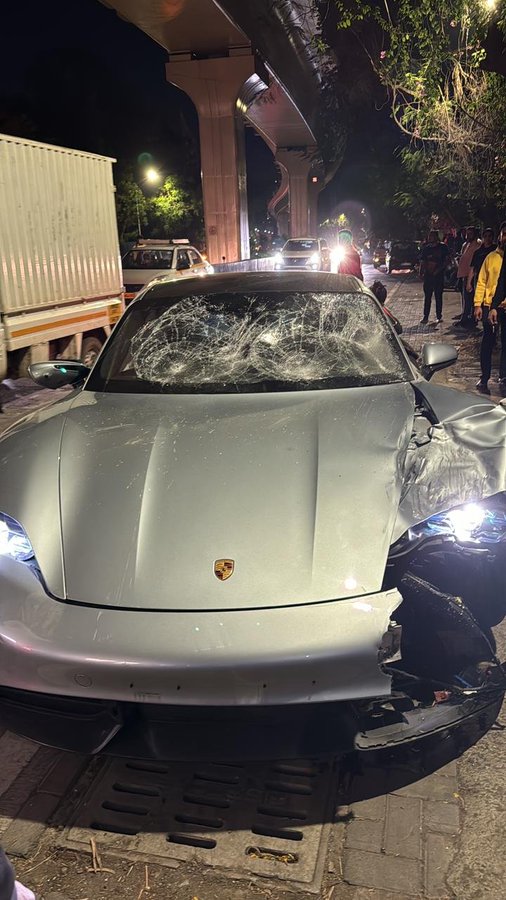Pune controversy: A 17-year-old involved in a fatal Porsche crash receives bail on the condition of writing a 300-word essay on road accidents.
Police seek to try him as an adult, raising questions about juvenile justice and the influence of wealth in the legal system. #Pune… pic.twitter.com/kmqqZv18VY
— thehardnewsdaily (@TheHardNewsD) May 21, 2024
An unfortunate event in Pune has sparked a contentious discussion over juvenile justice and the impact of affluence on the legal system. A 17-year-old male operating a Porsche was engaged in a catastrophic collision resulting in the demise of two individuals. The case has garnered much scrutiny, primarily because of the contentious bail conditions imposed on the minor, which including composing a 300-word essay on traffic collisions.
The incident, which took place in Pune, has compelled the local authorities to pursue the trial of the underage offender as an adult, considering the gravity of the offense. This action emphasizes the severity of the issue and demonstrates the significant repercussions of the incident. The Pune Police contend that the severity of the offense necessitates a more rigorous legal procedure, regardless of the perpetrator’s age.
Detractors of the bail terms have expressed their apprehensions, contending that the essay prerequisite diminishes the gravity of the offense. There is a widespread belief that this situation indicates an inequality in the implementation of justice, which may be impacted by the affluence and social status of the juvenile’s family. The case has ignited debates on the adequacy of the juvenile justice system in dealing with such grave acts and its ability to administer fair justice irrespective of socioeconomic class.
The event has also shown more extensive concerns within the juvenile justice system. Although juvenile laws are primarily intended for rehabilitation rather than punishment, instances involving serious crimes frequently test the effectiveness of this idea. The choice to prosecute the adolescent as an adult has the potential to establish a precedent for the handling of comparable situations in the future.
Legal scholars and social analysts hold differing opinions on the matter. There is a contention that the juvenile justice system should maintain its emphasis on rehabilitation, even in instances of grave offenses, in order to provide young offenders with the chance to change their behavior. Some argue that certain crimes are so serious that they require a deviation from normal processes for juvenile offenders in order to guarantee justice for the victims and protect society.
The bereaved families have articulated their sorrow and demanded retribution, underscoring the imperative of holding individuals responsible and the significance of ensuring road safety. They contend that the bail restrictions fail to adequately represent the gravity of the harm they have endured.
The case will be keenly monitored by legal experts, policymakers, and the general public as it develops. The result could have substantial ramifications for the juvenile justice system in India and its strategy for dealing with grave offenses committed by adolescents.
To summarize, the tragic Porsche accident in Pune, which involved a 17-year-old, has brought attention to important matters concerning the legal treatment of young offenders, the impact of wealth, and the suitable reaction to serious offenses committed by underage individuals. The decision to prosecute the adolescent as an adult and the contentious terms of release on bond are still provoking discussions regarding the guarantee of a just and efficient legal system.






